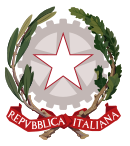- Constituent Assembly of Italy
-
Italy 
This article is part of the series:
Politics and government of
ItalyConstitutionExecutive- President (List)
- Prime Minister (List)
Judiciary- Constitutional Court
- Court of Cassation
- Court of Assizes
- Italian Council of State
- Italian Criminal Procedure
- Judiciary of Italy
Divisions- Regions
- Politics of Aosta Valley
- Politics of Piedmont
- Politics of Lombardy
- Politics of Veneto
- Politics of Trentino-Alto Adige/Südtirol
- Politics of Friuli-Venezia Giulia
- Politics of Emilia-Romagna
- Politics of Liguria
- Politics of Tuscany
- Politics of Umbria
- Politics of Marche
- Politics of Molise
- Politics of Lazio
- Politics of Abruzzo
- Politics of Campania
- Politics of Apulia
- Politics of Calabria
- Politics of Sicily
- Politics of Sardinia
- Provinces
- Municipalities
ElectionsForeign policy
The Italian Constituent Assembly (Italian: Assemblea Costituente della Repubblica Italiana) was a parliamentary chamber which existed in Italy from 25 June 1946 until 31 January 1948. It had the task to write a constitution for the Republic of Italy, which had replaced the Kingdom of Italy after its defeat during World War II.
History
On June 2, 1946 an election, the first since 1924, was held in Italy. Vote was allowed to all males and (for the first time) females older than 21. Voters received both a ballot for the choose between Republic of Monarchy, and one for the election of the deputies of the new Constituent Assembly; the latter would have the task to write a new constitutional chart, as established by a decree of 16 March 1946.
The referendum was won by a move to a Republic with some 12.7 million votes, against 10.7 millions favoring to continue being a monarchy. Umberto II, the last king of the country, left Italy on 13 June 1946. On 18 June 1946 the Corte di Cassazione proclaimed officially the victory of the Republic.
The election of the Constituent Assembly was based on a proportional system, based on 32 electoral regions. 573 deputies were to be elected, although the elections could not be held in South Tyrol, Trieste, Gorizia, Pola, Fiume and Zara, which were then under Allied or Yugoslav military control. Thus, 556 deputies resulted elected.
On 25 June 1946 the assembly was established, with Giuseppe Saragat (future president of the Republic) as president. Its first act, on 28 June, was the election of Enrico De Nicola as the Italian Republic's provisional president. On 504 voters, De Nicola (am member of the Italian Liberal Party) obtained 396 votes, followed by Cipriano Facchinetti (Italian Republican Party) with 40, Ottavia Penna Buscemi (Front of the Ordinary Man) with 32, Vittorio Emanuele Orlando (left) with 12, Carlo Sforza (PRI) with 2, Alcide De Gasperi and Alfredo Proja (both from Christian Democracy, or DC) with 2. Aside from the creation of the new constitution, the assembly was entrusted the approval of governments and of their budgets, and the ratification of the international treaties. The legislative function was formally assigned to the government, but, in virtue of the pre-Fascist tradition, the latter often assigned the emission of laws to the assembly.
The assembly elected among its member a Constitutional Commission of 75 deputies, with the task to write down the constitution's general layout. The Commission was further divided into three sub-commissions:
- Rights and Obligations of the Citizens, chaired by Umberto Tupini (DC)
- Constitutional Organization of the State, chaired by Umberto Terracini (Italian Communist Party)
- Economical and Social Relationships, chaired by Gustavo Ghidini (Italian Socialist Party)
A more restricted committee (informally known as "Committee of the Eighteen") had the task to write the constitution in accordance with the work of the three sub-commissions. The Constitutional Commission ended its work on 12 January 1947 and on 4 March the assembly started its debate about the text. The final text of the Constitution of Italy was approved on 22 December 1947.
The Assembly was dissolved on 31 January 1948, replaced by the new Italian Parliament.
Living members
As of August 2010[update], the living members of the Italian Constituent Assembly are Oscar Luigi Scalfaro, Giulio Andreotti, Emilio Colombo, Filomena Delli Castelli and Teresa Mattei. The first three are still members of the Parliament as Senators for Life.
Categories:- Government of Italy
- 1946 establishments
- 1948 disestablishments
- National legislatures
- Unicameral legislatures
Wikimedia Foundation. 2010.
